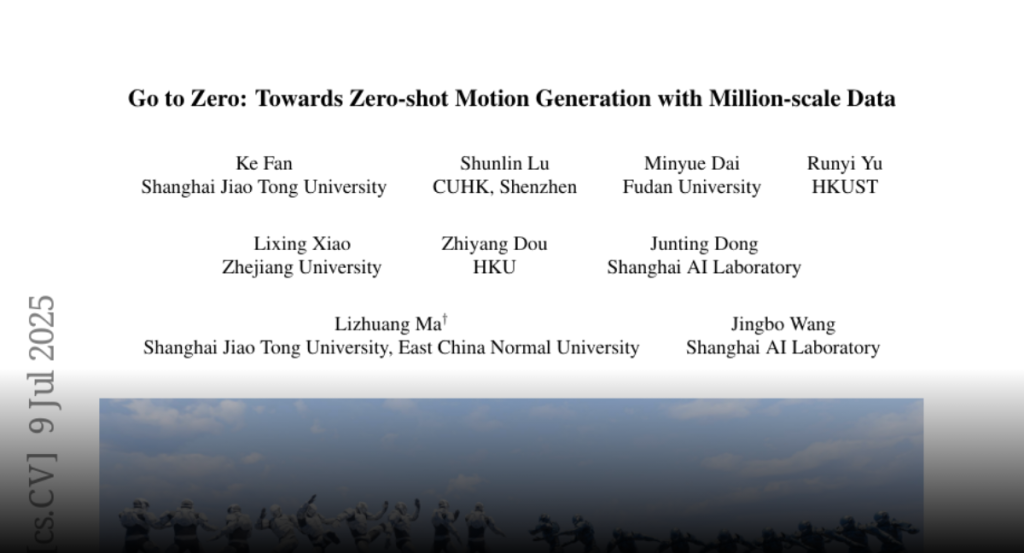A new dataset and evaluation framework improve zero-shot text-to-motion generation through a large-scale, high-quality dataset and a scalable model architecture.
Generating diverse and natural human motion sequences based on textual
descriptions constitutes a fundamental and challenging research area within the
domains of computer vision, graphics, and robotics. Despite significant
advancements in this field, current methodologies often face challenges
regarding zero-shot generalization capabilities, largely attributable to the
limited size of training datasets. Moreover, the lack of a comprehensive
evaluation framework impedes the advancement of this task by failing to
identify directions for improvement. In this work, we aim to push
text-to-motion into a new era, that is, to achieve the generalization ability
of zero-shot. To this end, firstly, we develop an efficient annotation pipeline
and introduce MotionMillion-the largest human motion dataset to date, featuring
over 2,000 hours and 2 million high-quality motion sequences. Additionally, we
propose MotionMillion-Eval, the most comprehensive benchmark for evaluating
zero-shot motion generation. Leveraging a scalable architecture, we scale our
model to 7B parameters and validate its performance on MotionMillion-Eval. Our
results demonstrate strong generalization to out-of-domain and complex
compositional motions, marking a significant step toward zero-shot human motion
generation. The code is available at
https://github.com/VankouF/MotionMillion-Codes.

